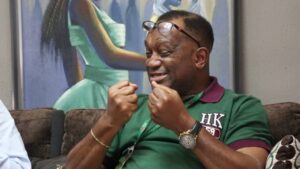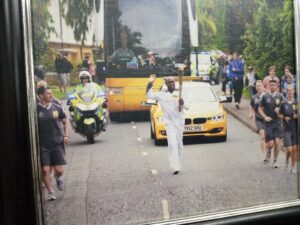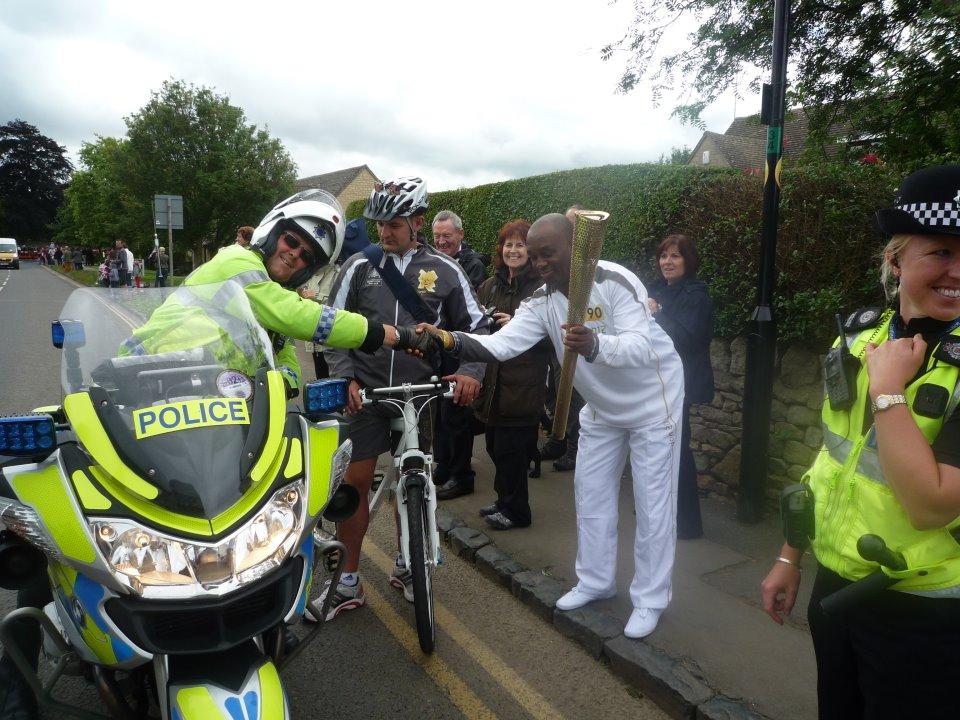The Editor, Sporting Life, Ade Ojeikere recently clocked 60. In this interview with Adeyinka Akintunde, he recalls his memorable work experience covering national and international sporting competitions and offers advice for excelling in journalism.
You are a celebrated sports journalist, can you recall your journey into Sports Journalism.
I give credit to the former Managing Editor of THISDAY Newspaper, Ide Eguabor who was my senior in secondary school (Government College Ughelli). He played football, and I played cricket. He was in Benin sometime in 1994, and he saw me talking about the World Cup on television. He came to me and invited me to come to THISDAY and be part of the contributors to the sports pages in the paper. I saw it as a challenge.
I worked under Dave Enechukwu, may his soul rest in peace. When he left for the defunct Post Express, I was asked if I could become the editor. I accepted. I was appointed to be the acting sports editor.
When it was time for the Olympics, I was sent to America to cover the Atlanta ’96 Olympic Games. One week later, the present Managing Director of The Nation Newspaper, (he was then an editor at THISDAY), came to America and we covered the Olympics properly because it is a multi-sports competition.
What made that Olympics stand out for me was not the gold medal won by the Nigerian dream team; it was not the gold medal won by Chioma Ajunwa nor other medals by our athletes.
After the Olympic Games’ soccer final against Argentina which Nigeria won 3-2, I noticed when the team was about to leave for Nigeria that there were complaints. In fact, there was a problem between the then Sports Minister, Jim Nwobodo and coach Bonfere Jo.
I just saw Bonfere sitting somewhere alone, very unhappy. It was quite ironic because the team just won the gold medal, everybody was celebrating, and the man in charge of the team was unhappy. I walked up to him to ask what the problem was. He said he will not be returning to Nigeria. I was surprised.
He showed me his ticket, I wrote down details and he did not know. I went back to Mr. Ifijeh to tell him of the story. He shouted, and asked if I was sure. He called to inform the publisher, Nduka Obiagbena and he asked me to go to the airport and make sure I see the coach pass through immigration and ensure that the Nigerian team also travel home.
I did that, and whereas, everyone was reporting how Nigeria won the Olympics, I did “Dream team returns without Bonfere”.
That, to date, remains very memorable for me. There are other stories I have done too, but this remains memorable.
Tell us more about your previous work experience and how you got to where you are today?
It was not planned. I was doing something for the Edo Broadcasting Service, before coming to Lagos. Big credit to Dave Enechukwu, may his soul rest in peace, who groomed me. I like the experience.
Dave once told me to try my hands on an essay, which I did. He was proud of me. He went to Mitchelle Obi and Ejiro Omonode’s office raised the issue and listened to both of them. He found out that everything I wrote was different from their thought processes. He put my essay on the back page. That is how I started writing the back page.
There was a time I was causing so many problems and the publisher decided to put my picture to my story so that people can put a face to my essays. Then I started writing Ade Ojeikere on Saturday, and as they say, the rest is history.
Your becoming Editor, SportingLife, how did it happen?
I left ThisDay in 2000 for National Interest. It was a moral duty for me to leave there. I was torn between a mentor and a friend. I set up the paper’s sports desk with Morakinyo Abodunrin as my deputy. I had Toyin Ibitoye, Richard Jideaka, Desmond Ekwueme, Emeka Nwani, Wole Omoogun, Ben Alaiya, Onyewuchi Nwanhukwu, and others as my correspondents.
Then we started National Interest, it was strong. When it folded up, all of them, except Toyin Ibitoye and I went to The Sun. I went to New Age and told them I wanted to edit a sports paper. They agreed and I joined.
We would have done a sports paper in THISDAY, but they recruited a new person, who I won’t want to mention because they felt I could not do it, and the paper never published.
When New Age was having problems in 2006, I just decided that it was time for me to go. I heard that Mr. Ifijeh was coming to Comet, and my friend Gbenga was there.
When I was asked to come to The Nation, I made it clear that we must have a sports paper. I did not want to become an editor of one-page paper. I was given eight pages. We started Sporting Life from a Saturday paper until one day the MD called that we should begin the daily edition.

About one year later, there was a meeting that we should stop Sporting Life. I just concluded that I was leaving. I explained to the MD that I dragged people out of their jobs to join me, what would I tell them. Besides, we have not done a full season, but we were already making an impact, in terms of sales in the North, in the South-South and South-East, though we were not yet doing so in Lagos.
It made a lot of sense to Mr. Ifijeh, so he took the risk of not stopping the paper, and as they say, the rest is history. Today we are the number one sports paper in the country.
Credit for Sporting Life must go to Mr. Ifijeh, with some of it going to my friend, Gbenga Omotoso, who said we should be given one year
What advice do you have for young journalists?
All of us have different backgrounds, my own might be different from others, but if you want to stand out in journalism, write big stories.
Journalism is not a church where you sing songs of praise. As a journalist, you are a watchdog. A dog that cannot screen any stranger should be killed.
If you must make your mark in journalism, you must fight, but in the fighting, your facts must be accurate. When someone tells you something, as a journalist, you must investigate.
You have told us about your biggest story at Atlanta 96, what are other memorable sports events you have covered?
I have been to all the Olympic Games since 1996. I only missed Athens 2004. But I think the one that I can call my best was in 2012, in London. I was with The Nation, doing the countdown, normal journalism. Suddenly, I got a letter from the International Olympics Committee (IOC), inviting me to carry the Olympic Torch. I first dismissed it, thinking it was a scam, but on a second thought, I asked questions, and it turned out to be true.

So, I carried the Olympic Torch in Birmingham with world-class athletes like the late Muhammed Ali and our own Nwankwo Kanu. That is one of the biggest achievements of my life. The girl who lit my torch was an American who had cancer. I am happy that my father was able to see it live on the BBC. I count it as one of my biggest achievement in journalism.
What is the future of Sports Journalism in Nigeria?
No two journalists are the same. We have different ambitions. I have my own. People say I have succeeded, but I keep moving on. It depends on what you want to achieve. I have said that if you are after material things, journalism is not for you, but if you want to make your mark, then journalism is the job for you.
You learn every day. I still read different newspapers and listen to programmes because I want to be ahead of my readers, because the readers are very intelligent and they have fact, so if you must earn their respect, you must be ahead of them intellectually and with facts.
What is your assessment of Sports Journalism in Nigeria today?
I am a Christian, so I don’t judge people. I allow them to judge me. I look at those who work with me and say “Gentlemen, let us strive to be the best”, and the only way is to have what others do not have. This means we have to research. The more you research, the more you see new things. I really do not care how any other person goes, provided you know what you are doing. For me, my constituency is The Nation and my colleagues.
If I see anyone doing what is not right, I address it. I strive for the best and I expect that all journalists should strive for the best, because, a man can be on the wrong path now, and change later. I don’t like to judge anybody. I don’t do that.
Any plans after The Nation?
Man proposes, God disposes, but the truth is that I will leave The Nation when the ovation is loudest. I don’t see myself giving beyond what my body can give. I also do not intend to spend all my productive years working for somebody else. I am still thinking, when I am set, I will walk up to the MD and tell him that I am going. I do not want to leave The Nation, and begin to look miserable. My future must be better than my today. I have started planning, but it has to do with taking it to the point where God will say it is enough.

